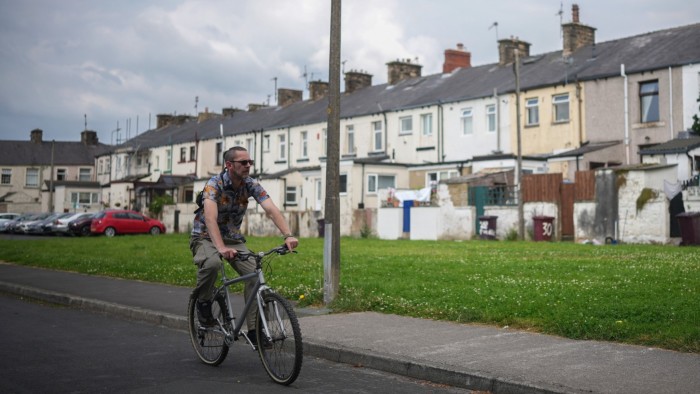Unlock the Editor’s Digest for free
Roula Khalaf, Editor of the FT, selects her favourite stories in this weekly newsletter.
Councils in poorer northern areas of England are set to be given £2bn of more generous Whitehall grants at the direct expense of more prosperous, typically southern authorities, which may have to raise council tax to fill the gap.
The UK government has announced an eight-week consultation on a “progressive” redistribution of local authority funding to tilt the balance of taxpayer support towards areas with the highest needs.
The move by Sir Keir Starmer’s Labour government is likely to benefit many councils run by his own party in England’s north at the expense of Conservative authorities in the south.
Local government minister Jim McMahon said on Friday that councils were “on their knees” after 14 years of funding cuts and “managed decline” by the previous Tory government.
“We are committed to delivering ambitious funding reform for local government based on need,” he said in a written ministerial statement.
He added: “The formulae used to assess local authorities’ current needs, which are a decade out of date, will be updated to target money where it needs to go and ensure those places that have been overlooked get their fair share.”
The revamp will shift about £2bn towards “places and communities that need it most”, McMahon said.
Councils receive about £70bn a year, about half of their income, from central government with the rest coming from council tax and business rates.
As a result town halls that lose out from the shake-up of the Whitehall funding formula may need to try to raise other levies to fill gaps in the budgets.
Local authorities cannot raise council tax bills by more than 5 per cent a year unless they successfully hold a referendum of residents.
Tory shadow local government secretary Kevin Hollinrake said: “These new backdoor rises in fees and charges are nothing more than stealth taxes — punishing the very councils that have kept taxes low and responsible.”
In recent years many people on low incomes in northern areas have been paying more council tax than some wealthier individuals in leafy southern counties where there are fewer financial demands on authorities.
Henri Murison, chief executive of the Northern Powerhouse Partnership, said it was a simple fact that many of the councils losing out from Friday’s reforms currently pay “dramatically lower” council tax than elsewhere.
He said mansions in some affluent London boroughs pay lower council tax than a semi-detached house in Hartlepool.
“As depressing as it is that councils serving the most disadvantaged communities have been underfunded for so long, we can now look to the future with a fairer settlement,” he said.
Kate Ogden, a senior research economist at the Institute for Fiscal Studies, said the reform was “long overdue” and would have a “very large” impact on some councils.
Poorer urban areas, especially in the north and midlands, which saw their funding fall most in the 2010s, will typically see increased central government funding, she said.
“On the other hand, leafier suburban and rural areas, particularly in the south, whose overall funding held up better during the 2010s, will now see reduced government funding,” Ogden added.
McMahon said too many areas had suffered from lower government support and “low historical tax bases” from which to raise income — even as high levels of need had driven up demand for services.
“The current funding system is a decade old and reinforces the divide between deprived places and the rest of the country,” he said.
While some councils will lose income, ministers will promise a “funding floor”, which would cap how much council’s grant income can drop by.
That means most councils that lose out will not see their budgets fall in cash terms at least for the new few years.
McMahon said the government would also invite views on “resetting” the business rates retention system to “restore the balance between rewarding business rates growth and aligning funding with need”.
Pete Marland, chair of the Local Government Association’s economy and resources board, said different councils would have “contrasting views” on the proposals.
“Individual councils will need to know the implications and a transitional mechanism is crucial to avoid putting services at risk . . . council finances remain under pressure and all councils need adequate resources to meet growing cost and demand pressures,” he said.




